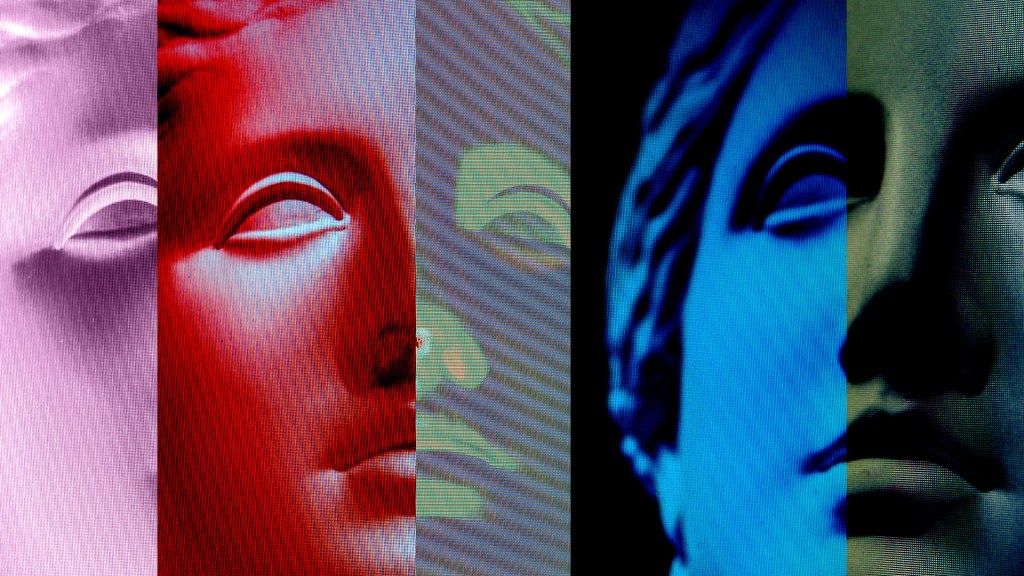Relationships are hard. Anyone who says they’re not is lying. When two or more people come together there’s going to be disagreements, and if you’ve never fought with your partner, something is probably off.
“There’s a big assumption that relationships are easy,” counsellor Laressa Lynch, from Wellington, told VICE.
Videos by VICE
“In relationships, we face parts of ourselves we don’t like. Often, it’s through work that we come to accept and make peace with ourselves.”
There is no perfect relationship. But our society, full of norms, roles and expectations, can make us feel like we have to live up to something pristine. Don’t text too much, but definitely don’t text too little. Feel safe enough to express your emotions, but also don’t overshare. If you’re a man, God forbid you let your partner see you cry and disobey patriarchal standards. If you’re a woman, be a feminist but remember to shave, pluck and wax everything to keep yourself desirable.
Relationships are hard, but deconstructing what we think we know, and building our own definitions of relationships, is the path forward. It’s something queer and neurodivergent people have been doing forever.
Neurodivergence is most commonly associated with neurodevelopmental conditions, such as Autism Spectrum Disorder (ASD), or ADHD, but also — depending on the researcher or expert you’re speaking with — can include mental illnesses, learning disabilities, and even brain injuries.
“It refers to the diversity of human neurology,” said Counsellor Maria Milmine. “Specifically, people who ‘diverge’ from dominant societal norms.”
For neurodivergent people, societal norms can be harder to understand. We spend our lives mimicking and masking, trying to fit in, appearing more like an alien than a real person. After years of contortion, you might fit somewhat, but you’re too fatigued to live properly, let alone thrive.
Neurodiversity-Affirming Therapist Neil Burton told VICE his clients are affected by this pressure from the outside, structured world, and it inevitably trickles into their relationships.
“I certainly come across single neurodivergent people with a negative self-image, a pattern of failed relationships and fear they’re incapable of being in a harmonious relationship,” he said.
“There are people who are traumatised and carry deep shame from years of believing they’re not good enough.”
Anton Ashcroft, Forensic Psychologist and co-founder of New Zealand-based neurodivergent support organisation, DivergenThinking, validated this: “It makes sense because you’re more likely to be ostracised or judged negatively,” said Ashcroft.
“If you’ve got a neurodiverse label and have not been well supported [e.g. by parents, or past partners], you’re more likely to experience anxiety and depression”
Despite this, experts say neurodivergent people are often more aware of the importance of caring for our mental health. Lynch mentioned how this “consciousness” is more common in minority groups, too: “I think any relationship that has people with marginalised identities involves a level of complexity,” she said. “Minority struggles impact the quality of life, and requires time and patience to support and value differences”.
Lynch’s work has a particular focus on the LGBTQIA+ community. She said she had found neurodivergent people were more inclined to challenge societal expectations. “They already know they’re deviating from the norm,” she said. “So they’re more likely to reflect on identity.”
Experts point towards resourcefulness, creativity, and a certain outside-the-box way of thinking, that can all help to redefine what a relationship is.
So what can be done to move away from social constructions of “good relationships” and move towards something more collaborative, more fitting, and more suitable for the life we (and our partners) want to live?
Lynch urged having conversations about mental health early on and said that doing so would allow for more conscious decisions about whether the relationship is suitable.
This sort of communication-based learning is specifically important to Burton, who said a certain amount of self-awareness of everyday challenges can help to identify your own vulnerabilities and difficulties.
Natasya Jones, part of DivergenThinking’s co-founding duo, highlighted the need for awareness of our mood and choosing the right moment to communicate. Putting it simply, “strike while the iron is cold. Don’t try to have a conversation [when you’re angry because] your brain is in survival mode, it’s not able to learn at that moment.”
Authenticity, it seems, is the obvious end goal. We could all be a lot happier if our understanding of what is and isn’t authentic involved ourselves and our potential partners.
When we let go of what we, our partner or our relationship should look like, the possibilities are endless; anyone can have their own unique version of a perfect relationship. We can focus on admiring our partners for their beautiful idiosyncrasies and the unique relationships we’re all capable of creating.
Francesca (Franciszka) Pietkiewicz is a freelance writer and podcast producer in Pōneke, Aotearoa.
Correction: Due to a mistake in communication, this story originally incorrectly quoted Anton Ashcroft and has been amended to reflect this error.
More
From VICE
-

Getty Images -

Rebekkah_ann/Getty Images -

(Photo by Jaap Arriens/NurPhoto via Getty Images) -

